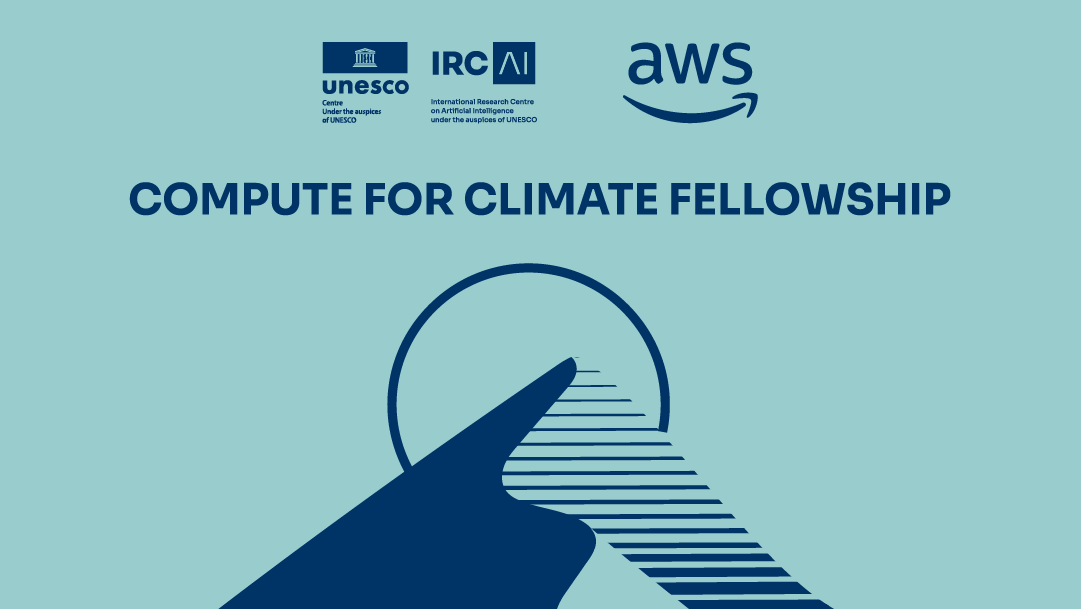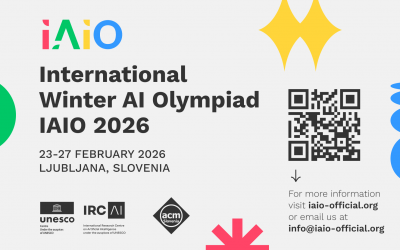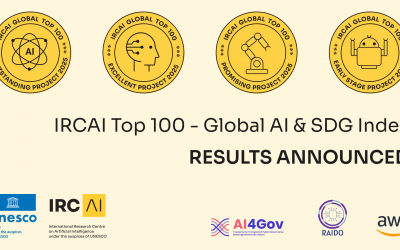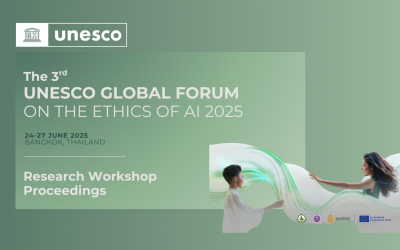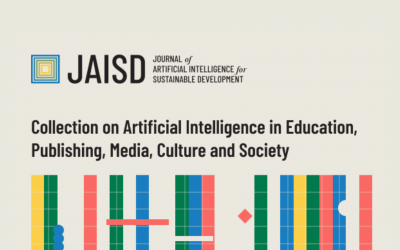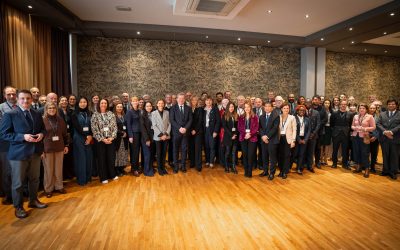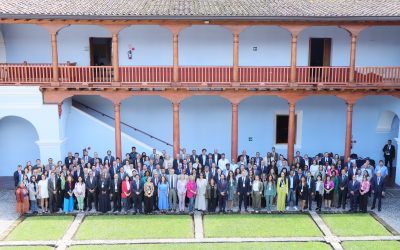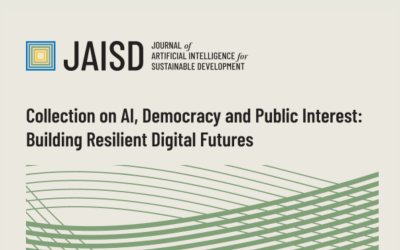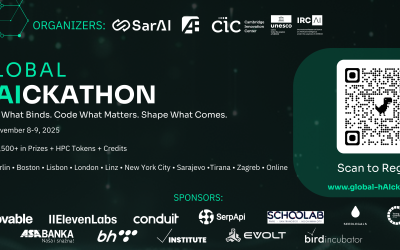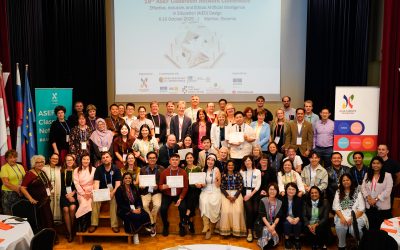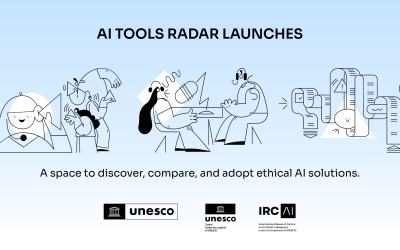The program will select and fully fund proofs of concept for new ideas leveraging advanced computing in the cloud, including generative AI and complex systems modeling and simulation, to help solve some of the biggest challenges in the fight against climate change.
LJUBLJANA—JULY 25, 2023 – The International Research Centre on Artificial Intelligence (IRCAI), an organization under the auspices of UNESCO, and Amazon Web Services, Inc. (AWS) today announced the launch of Compute for Climate Fellowship, a first-of-its-kind global program supporting entrepreneurs and startups applying advanced cloud computing and artificial intelligence (AI) to create new solutions that address the climate crisis. The Compute for Climate Fellowship will select startups with innovative ideas in this space and fully fund the building of their proof of concepts (POC). Applications open today and submissions will be accepted and selected on a rolling basis. Applications received by August 31, 2023, will be selected for development still this year.
“Artificial intelligence is quickly developing as both an academic and practical discipline. At IRCAI, we aim not only to be a guiding post in the development of these new technologies, but also to ensure they are a force for good for humanity,” said John Shawe-Taylor, Director at IRCAI. “Through this collaboration with AWS, we want to find some of the most innovative startups out there and help them ethically leverage AI and advanced computing to build groundbreaking solutions that address some of the key challenges created by the climate crisis.”
IRCAI and AWS will select proposals that think big, have the most innovative use of advanced cloud computing, and the biggest promise for global impact within six key problem areas in the fight against climate change:
- climate risk and resilience
- food security
- biodiversity and conservation
- climate-related health
- circular economy
- Environmental, Social, and Governance (ESG) analytics
Through the fellowship, global climate tech startups will have access to a variety of technical resources to build their POCs. Both IRCAI and AWS will provide selected startups with a team of experts in AI, sustainability and ethics, as well as access to advanced computing services, such as high performance computing (HPC), and technologies including AI, generative AI, and machine learning (ML). AWS will also provide participants with credits to cover the POC build. In addition, all POCs will be designed under the guidelines of UNESCO’s Ethics Impact Assessment for Artificial Intelligence to ensure that each solution is built with safe, trustworthy technology.
Climate change has created some of the most complex and pervasive problems of our time. Earlier this month, the world recorded its hottest day ever with the highest average temperatures across the globe, according to data from the U.S. National Centers on Environmental Prediction. Wildfires, floods, droughts, and rising sea levels have been consistently ravaging different parts of the planet for years now, posing a real threat to food security, health, and biodiversity. As we continue to see an increase in the effects of the climate crisis, thousands of tech startups are creating new and innovative approaches to help delay and reverse its impacts. The Compute for Climate Fellowship will help selected startups accelerate the research and development process for these solutions with comprehensive technical guidance and access to AWS advanced computing services to bring their POCs to life.
“Climate change is one of the biggest challenges of our generation and our message to the innovators out there with this program is: bring us your boldest, most visionary ideas and we’ll help you build them for free,” said Howard Wright, VP and Global Head of Startups at AWS. “By offering computing capabilities and access to new technologies, such as generative AI, to startups tackling climate-related challenges, the Compute for Climate Fellowship will continue our mission of driving sustainability through the cloud and hopefully help us change the course of the climate crisis.”
Advanced computing and artificial intelligence have already shown great promise in helping create solutions to fight climate change. IRCAI is mapping AI solutions across the world that are contributing to the advancements of the UN Global Sustainability Goals. AWS is currently supporting customers developing early-warning systems for food insecurity, analytics for health equity in the context of climate change, intelligence to power the circular economy, and modeling and simulation capabilities using HPC to identify and mitigate climate-related fires, floods, and heat waves. The advent of generative AI has also sparked ideas for new solutions in this space. AWS is helping customers explore how Large Language Models can help remediate biodiversity loss, support mental health interventions in impacted populations, and foster innovation among automotive manufacturers focused on reaching net-zero goals, electrification, and circularity. By supporting startups developing innovations in these spaces, the Fellowship hopes to advance IRCAI’s goal of applying ethical and cutting edge research in AI, as well as provide new solutions to AWS customers interested in becoming more sustainable.
Applications for the Compute for Climate Fellowship are now open. All applications submitted before August 31, 2023 will be considered for development still this year and may have the opportunity to be showcased at AWS’ re:Invent conference in November 2023. Applications submitted after September 1, 2023 will be considered for development in 2024.
Startups that apply but are not selected to participate will have access to up to $5,000 in AWS credits through the AWS Activate program, as well as free workshops and training on how to use AWS Advanced Compute services to build their solutions.
For more details on fellowship applications and eligibility, visit: https://ircai.org/compute-for-climate-fellowship.
About IRCAI
The International Research Centre on Artificial Intelligence is an AI-dedicated research UNESCO category 2 centre, committed to bridge both artificial intelligence and sustainable development following the UN’s ethical principles in AI and ensuring via any available means be it research, policy or technology, that the public is the main beneficiary of our actions. We’ve built an international network and inclusive environment of scientists where collaboration is encouraged and learning is shared freely. With a particular focus on equity, inclusion, and diversity, we develop insights, frameworks and tools to help both us, the public, and the broader AI community create AI that represents the diversity and development concerns of people across the world.
About UNESCO
The United Nations Educational, Scientific and Cultural Organization (UNESCO) is the agency of the United Nations contributing to building peace through international cooperation in education, the sciences, and culture.
Media Contact
Davor Orlic, COO, davor.orlic@gmail.com
Mihajela Crnko, CCO, mihajela.crnko@ircai.org
